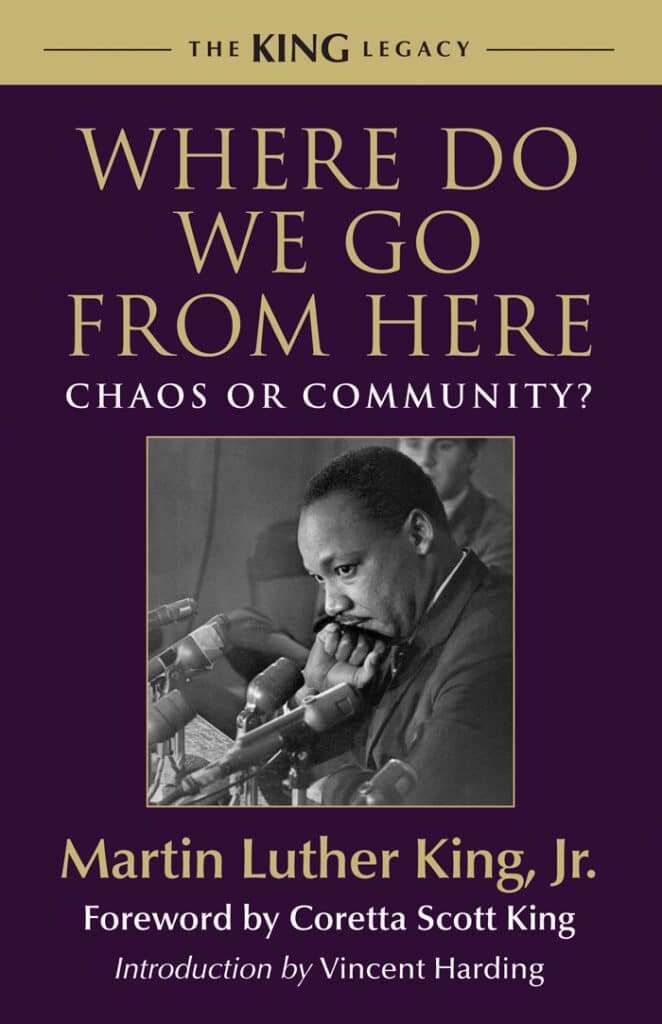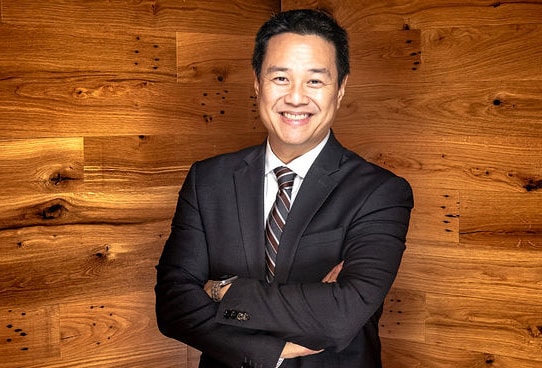Answering Dr. King’s Question: Where Do We Go from Here?
On this day of remembrance of the Rev. Dr. Martin Luther King Jr., I’m acutely in need of solace and inspiration. In recent days, I’ve found myself reaching for his 1968 book, Where Do We Go from Here? Chaos or Community? because the question of “Chaos or community?” is as fiercely urgent as ever. Just days after the January 6th white-supremacist insurrection on the Capitol, I see the U.S. teetering towards the nightmarish choice of chaos, rather than achieving the dream of “the beloved community” and a multiracial democracy, which Fannie Lou Hamer described as “the true democracy that’ll raise me and the white man up…raise America up.”

Where do we go from here?
Some have called for healing and moving on. That sounds appealing, but let’s not whitewash what’s rotten underneath. When modern societies have been forced to grapple with atrocities, many—from post-war Germany and post-apartheid South Africa to post-Khmer-Rouge Cambodia—have recognized the importance of revealing the truth in its entirety and holding responsible parties accountable to the rule of law, before any reconciliation can take place.
Truth and the rule of law are especially critical during this age of corrosive and intentional misinformation. We’ve witnessed an onslaught of anti-democratic ideas, racist views, ridiculous conspiracies, and other harmful narratives, which have become normalized more broadly and deeply than ever before. To begin fighting back against chaos, our nation’s leaders must halt the spread of falsehoods and re-normalize the rule of law, grounded in facts, honesty, and evidence.
Dr. King spoke often about the critical importance of truth in the pursuit of justice. In Where Do We Go from Here? he writes:
It is time for all of us to tell each other the truth about who and what have brought the Negro to the condition of deprivation against which he struggles today. In human relations the truth is hard to come by, because most groups are deceived about themselves. Rationalization and the incessant search for scapegoats are the psychological cataracts that blind us to our individual and collective sins. But the day has passed for bland euphemisms. He who lives with untruth lives in spiritual slavery. Freedom is still the bonus we receive for knowing the truth. “Ye shall know the truth, and the truth shall set you free.”
Can we, as a nation, overcome our divided silos of belief, which have been hardened by untruths, caricatured scapegoats, and strategic deception? I’m optimistic that we can. I often look to today’s spiritual leaders who have taken up Dr. King’s call for “a genuine revolution of values.” The Rev. Dr. William J. Barber II is leading a 21st Century revival of Dr. King’s Poor People’s Campaign and has called for a “moral revolution” to combat “the interlocking evils of systemic racism, poverty, ecological devastation, militarism and the war economy, and the distorted moral narrative of religious nationalism.” In a 2018 speech about Dr. King’s “revolution of values,” the Rev. Dr. and Senator-Elect Raphael Warnock affirms that such a revolution needs to be grounded in tangible steps—public policies, practices, and behaviors. He reminds us that Dr. King “led the struggle for civil rights until the law became an instrument of liberation” and that “he campaigned for the poor and died defending workers—defending garbage collectors, fighting for their dignity, fighting for a living wage.” There’s much work to be done.
In the final passage, Dr. King issues a warning: “We still have a choice today: nonviolent coexistence or violent coannihilation. This may well be mankind’s last chance to choose between chaos and community.” During these days between an insurrection and an inauguration at the U.S. Capitol, I believe we not only still have that choice, but we must ceaselessly choose it every day. Because every day is MLK Day.
Don Chen
President
Surdna Foundation


